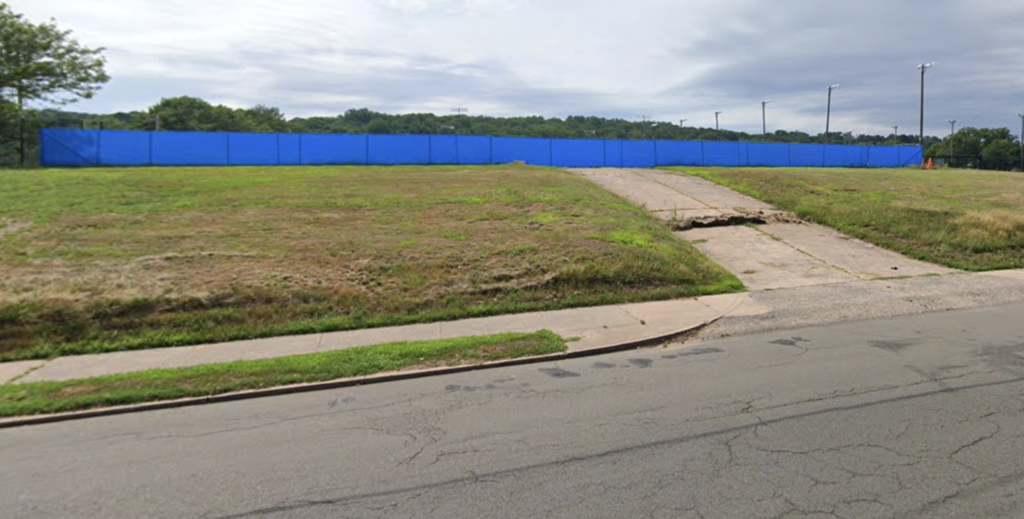From brass to grass: construction of a new training ground underway in a new chapter for the Yale Armory site
[ad_1]
Construction of a new turf training ground is underway at the site of the former Yale Armory, which was demolished in 2019 after originally housing the Yale Artillery Battalion and subsequently served as home to the Yale Club polo and horse riding teams.
Wei-Ting Shih
Journalist
Courtesy of Google Maps, 2021
Once a state-of-the-art 20th century facility, home to the Yale Club polo and riding teams, the site of the former Yale Armory is fast becoming a new turf training ground available for sports teams. of Yale, student groups and the Yale community.
Located at 40 Central Ave., the historic Armory once stood in the heart of the University’s sports campus. It was adjacent to Johnson Field and close to both DeWitt Family Field and the Yale Bowl. The site, which will become a natural grass pitch, is also directly opposite the new Tsai Lacrosse Field House and Reese Stadium.
“Construction is currently underway at the site of the former Yale Armory,” Yale deputy sports director Ann-Marie Guglieri wrote in an email to News. “This business will turn the space into a grass training ground that can be used by many different teams, programs, groups and students at Yale.”
Guglieri declined to answer follow-up questions about which teams will use the new pitch.
The grass field will be 2.8 acres, depending on the The New Haven Independent Report on the City Planning Commission meeting at which Yale’s site plan application was approved in August 2019. During construction of the Tsai Lacrosse Ground, the site of the Yale Armory across the street was used as a construction staging area, the Independent reported.
The Yale Armory was the first arsenal affiliated with a university in the United States. It was built in 1916 for the Yale Artillery Battalion, the predecessor of the Yale Army’s ROTC Group, and it was completed shortly after Victory Day. Even after the end of World War I, Yale stayed an officer training camp and a militarized university for several years. It also became the only civilian college to offer artillery training. Much of this was done in the old Yale Armory, although the facility was also used for cavalry practice.
By the turn of the 20th century, the Yale Armory was well-equipped and well-maintained. Harvard Crimson reported in 1917 that the features were “the most modern in all respects”. The Armory consisted of a main building 160 by 220 feet with an exercise room and gun sheds, as well as stables that could house at least 120 horses. The Armory also had a harness room, forge, restrooms, lockers, showers, conference rooms, and meeting spaces.
However, physical degradation has become noticeable in the facility after decades without renovations. In April 2000, the polo and riding teams who used the armory filed a petition for university status, as well as a “proposal for the reconstruction and support of the polo and riding center. of Yale â€, which was part of the armory. This report detailed the deteriorating condition of the Armory and called for immediate improvements.
Years later, according to an article in the News, the teams remained “frustrated because the administration [had] showed no signs of proactive financial support for the project.
“The hope was that the University would give the impetus, [but the administration says] we have to get the ball rolling, â€polo captain Michael Dawson ’04 told The News.
After sleeping through the 2010s, Yale demolished the armory in early 2019 after town cited him for a security breach. In August, Yale chief planner Jeromy Powers and other Yale staff put forward a proposal to replace the old armory site with a new natural grass pitch. They received the unanimous approval of the city commissioners. Now, with the new Tsai Lacrosse Field House open across the street, construction is underway.
Yale has yet to announce the expected completion date of the new field.
[ad_2]

